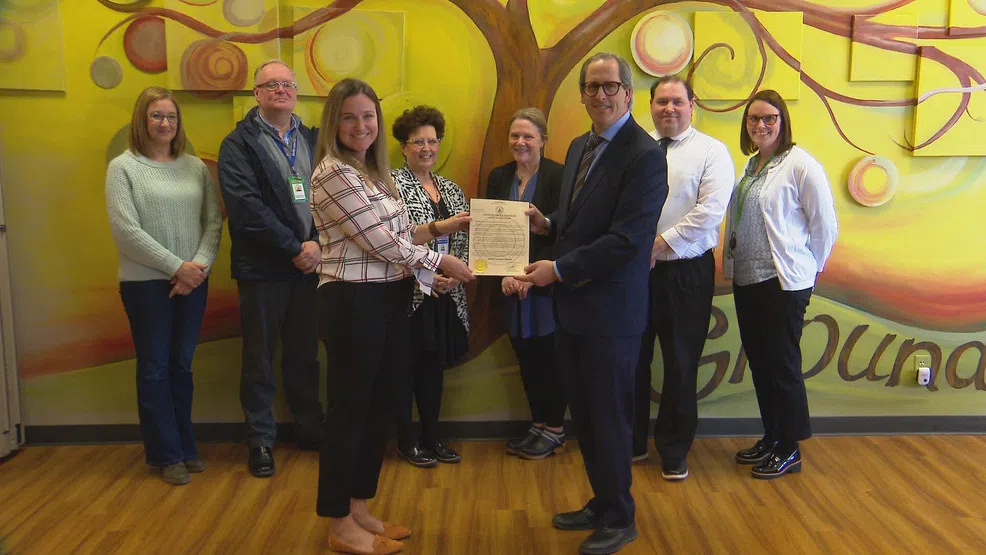GREEN BAY, WI (WTAQ-WLUK) — Brown County is encouraging residents and organizations to think of ways to provide inclusion for people of all abilities.
Brown County executive Troy Streckenbach declared April as Autism Acceptance Month.
Officials say they used the word acceptance instead of awareness, for good reason.
Executive director of the Autism Society of Greater Wisconsin, Kirsten Cooper, says while awareness is the first step, acceptance is action.
“Awareness is knowing that people with autism experience sensory sensitivity. Acceptance is turning down the music, turning off bright, flashing lights or offering other sensory accommodations so that people with autism feel welcome and can fully participate in our communities,” she said. “Acceptance is when we stop expecting people with autism to change to be included in our communities but we start changing our communities to be more inclusive.”
A way for the community to get involved is the Autism Society of Greater Wisconsin’s annual convention, which will be held at the KI Convention Center in Green Bay, April 20-22.
It will offer more than 30 sessions from 50 organizations on ways the community can create ways those on the autism spectrum can feel included.
Streckenbach says Brown County has a history of working toward acceptance, highlighting groups and organizations making people of all abilities feel valued and welcome. For example, Brown County is home to Syble Hopp School, which is one of only two in the state that is dedicated to children with special needs from the ages 3 -21. He also mentions the Grounded Café, a business that offers a job skills training program for individuals with disabilities.
Brown County deputy executive, Jeff Flynt, agrees that Brown County is doing a tremendous job.
He himself is a father of two boys, both on the autism spectrum.
“Having job training, having activities for them to do, having friends, having that personal interaction, those connections, that really are at the root of what life is about because even adults who don’t have different abilities, who just go through life, they have the same basic needs. They want connections, they want to feel belonged, they want to engage with the community, engage with others and that’s all a parent or a loved one of someone who has special needs can ask for is just the same,” Flynt said.
According to the CDC, autism affects one in every 36 individuals in U.S. and one in 53 individuals in Wisconsin.



